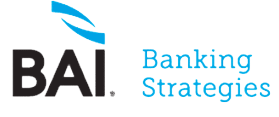Birmingham’s banking community is finding that the growing financial technology sector is providing both challenges and opportunities.
Nowhere is that more evident than the growing marketplace lending arena.
Marketplace lenders, which provide an online, tech-driven way to connect borrowers and lenders, are creating new business and new competition for Birmingham’s traditional banks.
And some Birmingham financial veterans are carving out their own niche in the industry, which an American Banker study showed has increased by 700 percent in the past four years.
Simply put, marketplace lenders are companies that create an online option for consumers to find loans for everything from home purchases and small business loans to loans for purchases at specific companies.
Some are direct lenders that actually hold the loans, while others are simply platforms that partner with financial institutions to originate loans.
With major players like Avant, Kabbage and Lending Tree, it’s already a huge industry. And Birmingham banks and financial pros are trying to carve out their own place in the business.
One new player is based in Birmingham.
Stairway Lending, started by Birmingham financial industry veterans Cary Cooper, Josh Dennis and John Romero, was launched six months ago. The company plans to initially focus on student, health care and small business loans.
Company leaders say they are carving out a niche with loans that are too small for many banks.
“It takes more money for a bank to process smaller loans than they would make on the interest of that loan,” Cooper said. “So using us, the companies not only are not losing money, but actually come out on top.”
Stairway uses its own in-house technology and cobrands its websites with businesses that use its services.
The ease of finding a loan – a decision comes instantly, and often the money is available that day – is one of marketplace lending’s strong selling points. And big banks are getting on board.
Regions Bank announced last October a partnership with Fundation, an online lending platform Regions executives say can help small businesses find loans.
“We asked our customers early in 2015 what were some of the products they wanted to see from Regions, and a large percentage of our business customers expressed an interest in working with us to use an online lending experience,” said Joe DiNicolantonio, head of Regions Business Banking. “So, we started looking at ways to fill that need.”
They partnered with Fundation after researching several other platforms.
DiNicolantonio said the use of Fundation can combine the face-to-face personal banking experience that small business owners want, with the ease and convenience of the online lending process.
“The customer is walked through the whole process, so it is not just some dark space they are entering when applying for and receiving the loans. There is still a customer experience. Someone talks to them and sees them through the process.”
Using an MPL, Regions can still retain customers while offering them the opportunity to access funds through a fast and convenient outlet.
Regions also announced earlier this year that it would team up with Avant, another marketplace lender, but Regions officials say that partnership will not begin until later in the year.
Stephen Yoder, assistant professor at the UAB Collat School of Business and of counsel at Balch & Bingham, said banks teaming up with marketplace lenders and other non-bank financial service providers is a logical reaction to what is called “disintermediation” in banking.
“Disintermediation is a fancy term for the lessening of the role of banks in our financial system, and its pace has been quickening dramatically in recent years,” Yoder said.
“Crowdfunding sites like Kickstarter and nonbank lenders like the Lending Club are other examples of non-regulated lenders moving into what used to be the territory of banks.”
Yoder said there are many causes of disintermediation. One being technology – which makes it much easier for non-banks to reach consumers and other traditional banking customers directly. Another is the Dodd-Frank banking legislation passed in 2010 that has put pressure on banks to raise more capital and to spend more on compliance, probably at the expense of making as many loans as they would like to make.
“Avant is not itself a lender, however,” Yoder said. “Its bank partners are still making the loans that are started on the Avant website.”
Whatever the future holds for these lenders, the industry is taking notice. Foundation Capital predicted last week that marketplace lending is expected to grow to $1 trillion by 2025.
More News
Visa boasts of fintech Fast Track success
May 14, 2020
New York City Credit Program Aims to Help Female Entrepreneurs
November 14, 2019
Import/Export SMBs Introduced to Fintech Lending Options
August 7, 2019
Online Loans You Can Take To The Bank
April 23, 2019
Case study: Citizens Bank – fintech friendly
February 19, 2019
2018 Best of FinXTech Awards Finalists Announced
March 29, 2018
Citizens Digitizes SMB Lending Process With Fundation
November 6, 2017
Park Bank Announces Expansion of Small Business Lending Efforts
November 2, 2017
Defining, Adopting and Executing on Fintech
September 5, 2017
Fundation CEO Talks Partnership Strategy
August 4, 2017
Fundation works with, not in place of, banks
April 3, 2017
Fundation Secures Credit Facility from MidCap Financial
March 21, 2017
Where the money is: A small business lending gap
March 3, 2017
Q&A Break with Sam Graziano, CEO of Fundation
January 18, 2017
Fintech Ideas Festival Rapid Fire Emerging Tech Panel
January 17, 2017
Citizens Bank Next To Take The Leap With Alt-Lender
December 21, 2016
Regions Eyes Small Business Loans in Latest Tech Deal
September 22, 2016
Is The Future Of Alt-Lending Playing Well With Others?
August 30, 2016
Best Alternative Small Business Loans 2016
May 27, 2016
Frenemies In the Marketplace
April 29, 2016
Bigger Bang In Small Biz
April 1, 2016
How To Get A Small Business Loan (Webinar)
March 29, 2016
Fundation Expands Small Business Lending
March 4, 2016
Top 25 Financial Blogs for Small Businesses – 2016
February 22, 2016
CEO Sam Graziano on MSNBC’s Your Business
February 18, 2016
Bank Branches Are Still Good for at Least One Thing
February 17, 2016
Fundation Named Finalist In 2016 Stevie® Awards
February 12, 2016
A “Meaningful” Platform-Bank Partnership?
January 6, 2016
Late on a Loan Payment? How To Do Damage Control
October 21, 2015
Regions Inks Unique Deal to Tap Booming Fintech Industry
October 13, 2015
Best Alternative Small Business Loans – 2015
October 6, 2015
Fintech strikes again; Regions partners with start-up
October 5, 2015
Investing in Alternative Lending?
May 1, 2015















